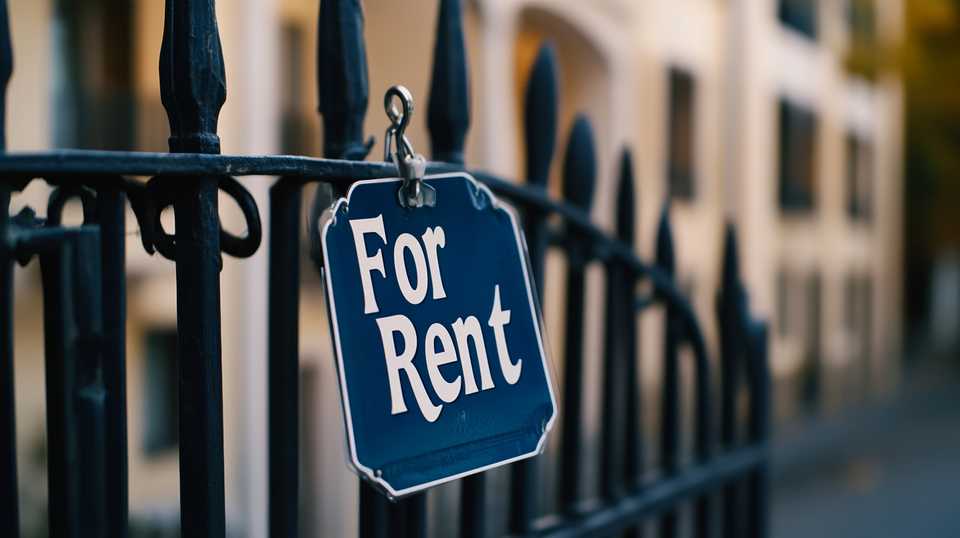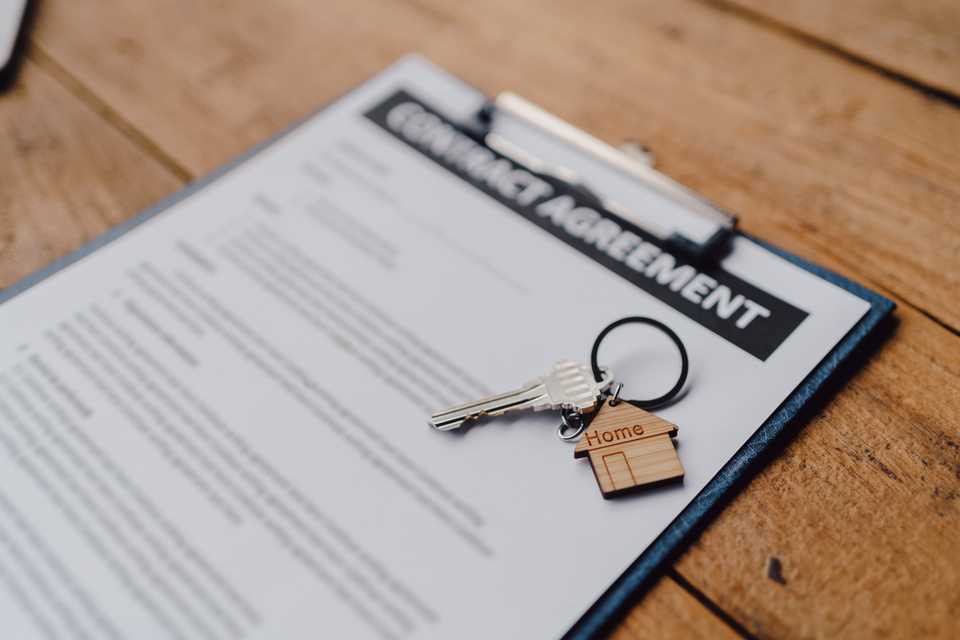As July approaches, most tenants receive a letter regarding the renewal of their accommodation.
Normally, when you decide to stay in the same house, the most important element in the renewal letter is the modification of the rent.

Indeed, as you may know, the landlord can, every year, decide to increase the rent in order to accommodate the payment to the reality of the market. Although it can be frustrating for the tenants, this increase is mostly allowed to compensate for the owner’s payment.
Even if most of the landlords respect this and adopt an increase that is not abusive, some owners will take advantage of the situation to obtain a financial benefit at the expense of their tenants.
In such a situation, you have the right to contest the rent increase. If you decide to do so, the Administrative Housing Tribunal will then have the authority to intervene and fix the rent for the upcoming year.
Here is how the Administrative Housing Tribunal can help you regarding the fixation of your rent for 2025-2026!
How Does the Renewal of My Lease Work?
In Quebec, every residential lease is automatically renewed. In other words, although it is recommended for the landlord to send a renewal letter, it is not required to pursue the lease for the next year.
Hence neither the tenant nor the owner of the property needs to send a notice for the renewal of the residential lease. This is mostly due to the lessee’s right to maintain occupancy which is recognized by the Quebec Civil Code.
| Good to know! It is not possible for the tenant to waive in advance his right to maintain occupancy. Therefore, your lease cannot indicate that you will not be allowed to renew your rent next year. |
|---|
Once the moment of renewing the lease occurs, the landlord is allowed to raise the rent and to change some conditions within the lease. For instance, he could add or remove a parking slot. However, if he decides to change an element of your lease, he must make sure to respect the law and the conditions attached to such a modification.
Fixing the rent: What Is the Role of the Administrative Housing Tribunal?
According to the Civil Code, the Administrative Housing Tribunal is competent for fixing the rent. In the exercise of its duty, the Tribunal must take into account the standards that are set by the Regulation respecting the criteria for the fixing of rent.
The Tribunal will also be able to adjust the rent by taking into account the income and expenses of the accommodation within a relevant timeframe. Such a period refers normally to the previous year of the lease. In some situations, it could also consider the quality of the services directly linked with the lease.
However, this is not the case with preferential rent. Preferential rent includes the rent of an accommodation that is inferior to what is normally expected for a comparable dwelling. It refers to the situations where:
- The tenant is a relative of the landlord or one of his employees,
- The landlord is financially supporting the tenant,
- The accommodation is in a building you inherited, and the low rent is due to bad management, or
- The landlord is an agency (or a department) of Quebec’s Government.
In such a situation, the Tribunal will not be doing the same analysis and will take into account different factors to be able to establish the current amount for the rent of the upcoming residential lease.
What Expenses Are Considered for Fixing the Rent?
As mentioned, multiple factors are considered by the Administrative Housing Tribunal when it is asked to fix the new rent. One of the main considerations concerns the expenses of the landlord.
Obviously, not every expense will be considered in the evaluation of the judge. Therefore, here is a list of the relevant expenses which will allow you to have a broad idea of the extent to which the rent can increase.
Operating Expenses: One of the most important expenses the landlord will have to pay every year is the operative one. This expense is normally assumed on a regular basis and allows the landlord to maintain the building in good condition. Therefore, operating expenses include:
- Insurance premiums,
- Taxes (municipal and school),
- Maintenance costs,
- Management costs (if applicable)
- Costs of various services, and
- Electricity costs (or gas).
More specifically, the Tribunal will, in the case of taxes and insurance premiums, use the variation over the last 2 years to establish the actual cost. The other expenses will be adjusted according to adjustment percentages.
The adjustment percentages are established every year according to the Regulation mentioned above. The Tribunal will simply have to take into account the percentages and apply them to the total expenses incurred during the lease that is finishing.

For instance, regarding management costs, the percentage is set at 5% of the gross annual revenue of the accommodation. However, in some situations, the cost could be considered up to 10% of such revenue.
Additionally, the method used by the Tribunal to determine the rent will also include an adjustment of the net income of the property. The net income is basically the difference between the gross income of the property and the operating expenses. The result will then be adjusted according to the percentage set by the Regulation.
Major repairs (or improvements): As a landlord, you may have made improvements to the accommodation during the last lease. Those repairs have probably entailed costs that are not included in the operating expenses.
What are the works included? The landlord could include all the improvements made to repair the main structural elements of your property, notably:
- The roof,
- The heating system,
- The windows,
- The insulation, or
- The plumbing.
Furthermore, you could also include the renovations in the accommodation or the common areas when you own a building with multiple apartments. The improvement could also involve the addition of new facilities, such as parking slots.
| Important! If you wish to increase the rent of one of your tenants because of work you conducted, he must benefit from your expenses. Therefore, if you improve the bathroom of one apartment, you can’t increase the rent of his neighbours. This condition is not applicable regarding the maintenance expenses. In that case, there is no distinction made, and all the tenants will have to share the fees in the rent increase, regardless of who benefitted from the expenses. |
|---|
No matter the expenses, they will be adjusted to the percentages of the Regulation. However, you must keep in mind that those percentages are different from those used for the maintenance expenses.
Can I Ask a Hearing Before the Administrative Housing Tribunal?
If you received a lease renewal and you disagree with the new amount, you can file an application to have the rent fixed. In that case, the landlord will receive the form Necessary Information Regarding the Fixing of Rent.
Once he receives the document, he will have to fill it out and declare all the incomes and expenses related to the accommodation that he wishes to admit as evidence. He will then have to send everything to the Tribunal within 90 days of the reception.
In the same time period, the landlord will have to notify the tenants that he sent the documents and transmit a copy of the filed form and of the evidence. If he fails to do so, the Tribunal will automatically close the case and the lease will be renewed under the previous rent.
| Did You Know? At the hearing, the lessor (your landlord) will have the obligation to provide the originals of all the supporting documents. They could include the bills of insurance, the tax notices and any other evidence of the payment he did. |
|---|
If all the conditions are respected, the Administrative Housing Tribunal will give you a date and a location for the hearing of the parties. This information will be transmitted through a notice of the hearing.
Once the Tribunal renders its decision, it must be done in writing and sent directly to the parties. At that point, the new rent must be paid in the month following the date of the Tribunal's decision.

Can I Contest a Decision from the Tribunal? Of course! When the Administrative Housing Tribunal renders its decision, both parties can ask for a review of the decision regarding the fixation of the rent. To do so, you must be able to show that an error was committed. Furthermore, the application for review must be done in the month following the decision.
Modification of the Lease – What Are the Steps to Follow?
As the landlord, you are able to change some elements of the lease at the moment of the renewal. As you previously mentioned, this does not only concern the rent but also other important elements. To do so, you must however follow the different conditions.
Here are the steps to follow if you want to modify the residential lease of one of your tenants:
1) Notify the Tenant
When you take the decision to change the lease, the first step is to give your tenant a written notice in order to inform him that you wish to modify the content of the lease. Obviously, you must inform them of the modifications you are proposing.
Depending on the type of residential lease you signed, you will have the obligation to respect a specific time frame. Indeed, the notice period will vary according to the length of the lease you signed.
| Residential Lease Length | Written Notice Period |
|---|---|
| Lease for less than 12 months | Between 1 and 2 months before the expiration of the lease |
| Lease for at least 12 months | Between 3 and 6 months before the expiration of the lease |
| Indeterminate term lease | Between 1 and 2 months before the modifications |
| Lease for a single room | Between 10 and 20 days before the expiration of the lease OR before the modification (if it is an indeterminate term) |
According to the good practices set by the Tribunal, it is strongly recommended to have proof that the notice was received by the tenant. Therefore, your notice should be delivered through one of these methods:
- By registered mail,
- By hand (if you have an acknowledgment of receipt), or
- By any other way which allows you to have a valid proof of receipt.
Additionally, your notification must contain specific information. Not only must it be in writing, but it must also state clearly all the modifications you are proposing to your tenant and what they are concerned about exactly (the rent for instance).
Furthermore, you must include a deadline for your tenant to refuse your proposition. This deadline has to be 1 month preceding the reception of the written notice. Lastly, you will have to sign and date the notice.
Regarding the phrasing of your modifications, it is important to make sure that there is no confusion. For instance, if you intend on increasing the rent, you can mention that modification in three different options:
- You indicate the total price of the new rent, in Canadian dollars,
- You indicate the increase, in Canadian dollars, or
- You indicate the increase in percentage of the current rent.
Whenever the Administrative Housing Tribunal is processing the application to fix the rent, the new rent will not be known. Therefore, it is recommended for the landlord to indicate the percentage of increase they seek to add.
2) The Tenant’s Reply
Whenever the tenant receives the written notice, he basically has three different options when he decides to reply:
- He can accept the renewal with the modifications,
- He accepts to renew the lease but refuses the proposed modification,
- He refuses to renew the lease (he will then have to vacate the accommodation at the end of the lease).
If the tenant accepts the modification and wishes to renew the lease, he does not have to do anything. However, it is still possible to simply reply if you want to make sure that your landlord knows your intention.

On the other hand, if your response is one of the two other options, the tenant will have the obligation to notify the landlord within the month of reception of the notice. If he fails to respect that timeframe, he is deemed to have accepted the modification.
Whenever the lessee decides to object to a modification, it is possible the hw needs to vacate the accommodation upon termination of the lease if it is one of the situations at Articles 1945 and 1955 of the Quebec Civil Code:
- The dwelling is located in a housing cooperative, or
- The dwelling is located in a building constructed in the past 5 years or less.
As a landlord, it is important to verify the type of building in which your property is. This could entirely change the rules regarding the renewal of a lease and the fixation of the rent for the upcoming year.
Find a lawyer specialised in housing law entirely for free with the help of JuriGo!
3) File an Application to Fix the Rent
In case of an objection from the tenant, the landlord will have to apply directly to the Administrative Housing Tribunal in the month of the reception of the notice of objection. Once the Tribunal renders its decision, you will have to comply with it.
If you do not respect the time limit, the previous lease will be automatically renewed under the same conditions. Therefore, the tenant will have to pay the same rent as he did during the previous year.
Of course, such a process can be difficult to understand and, sometimes, the landlord may simply not have the time or the knowledge to go through the process all by himself. If you need help, there is always the possibility to communicate with a lawyer.
Indeed, the lawyer will not only help you in the redaction of the notice and of every other legal document you might need, but he will also represent you if you need to go in front of the Administrative Housing Tribunal for a dispute between the landlord and the tenant.
Communicate today with JuriGo if you wish to find a lawyer that can help you in a few clicks only!